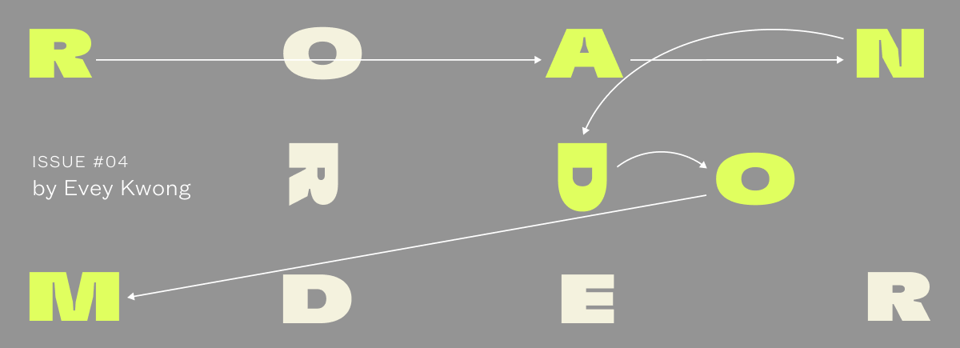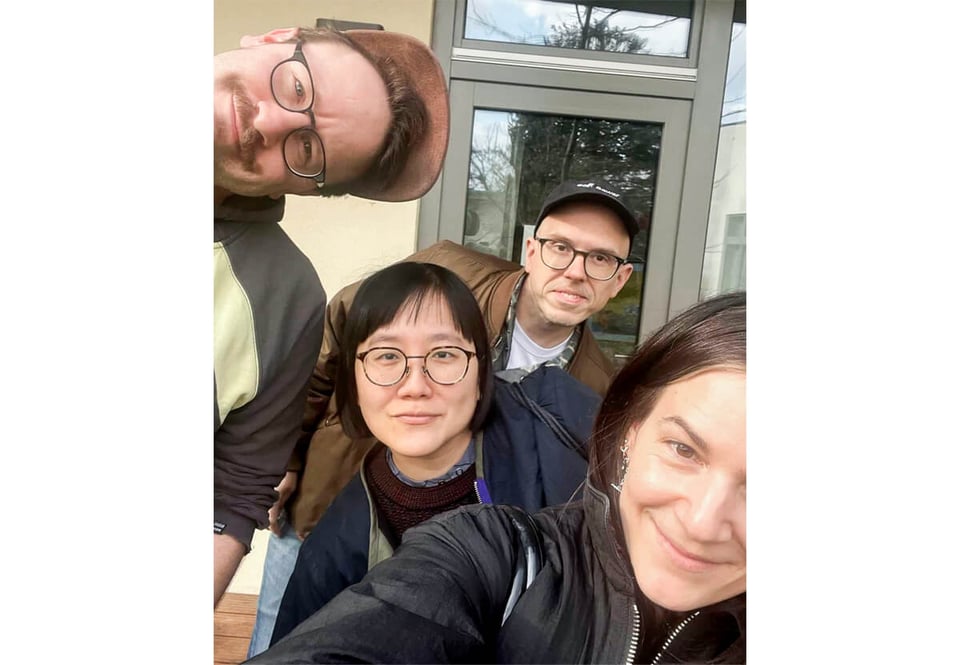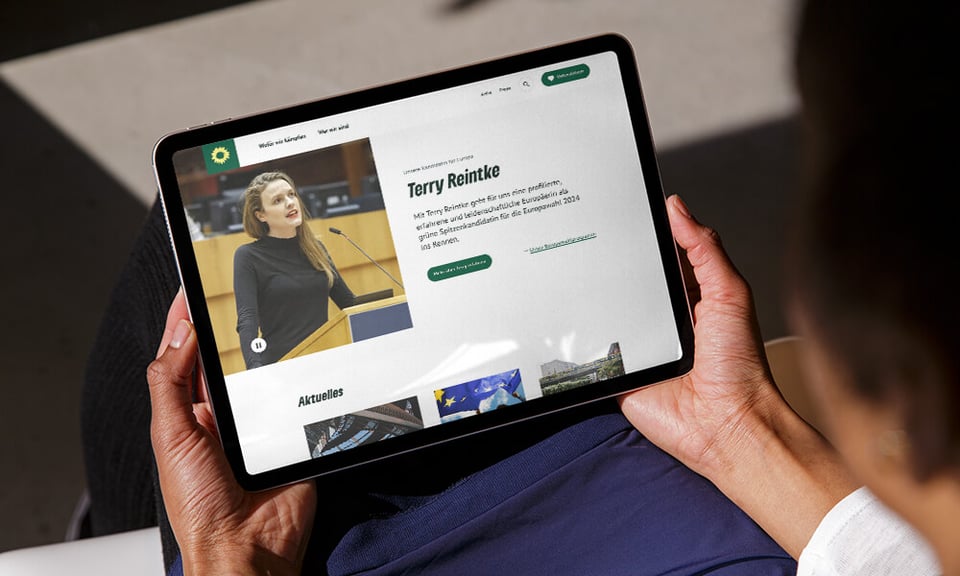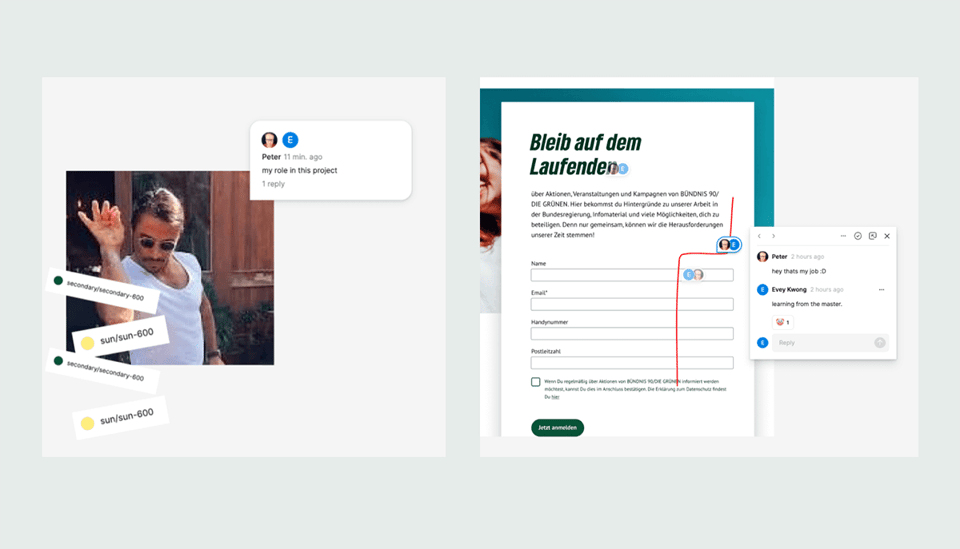
Hi there,
In December 2023, Ponder and i started collaborating and recently, we just relaunched the website we designed for German Green Party 🎉. I am excited to reveal the case study here. Additionally, Ponder did an interview with me to recapture our collaboration together. 👇🏼

Ponder: Hi Evey, how would you describe your role?
Evey: 👋🏼 A human being, a designer, a researcher, an educator, and a creative with a restless spirit. More practically, my work focuses on understanding how design can be used as a strategic tool in times of crisis and on developing design practices that are both effective and ethical.
P: How do you see yourself and your situation?
E: Born as a millennial, I have witnessed the evolution of social interactions, digital technologies (from 56kbps modem connectivity to AI) and data privacy (from being anonymous to being a data-collected individual). This has created a complex landscape that requires a high level of vigilance in all our decisions and ways of working. On the other hand, I think it is important to focus on our strengths and work with people who share the same values as ours. As an independent designer, I practise strong values, high efficiency and have a strong structure in my work.
P: Why do you work in our industry, in this role and how do you like it?
E: In addition to having the opportunity to work with a diverse range of clients and projects, I enjoy the challenge of shaping and imagining identities for individuals, corporations and institutions.
Working in the design industry also allows me to practise many transferable skills. For example, when working on a project or in a team, you are automatically challenged with problem-solving, critical thinking, project management and conflict-handling skills.
My experience also repeatedly made me feel the impact that design can have on society. There is so much potential to initiate discussions, reduce political polarisation and conflict, and act as a mediator and catalyst for change.
P: What values are important for you in your work?
E: I value transparency, trust, and inclusivity. I often accompany my clients and project teams through all project phases and take care of not only technical and operational tasks but also communication and advisory capacity. It is important to feel a sense of ownership in a project, and this is often achievable only through a clear understanding of decisions made collectively, professionally and, to a particular extreme, finding compromises through pragmatism.
P: How do you choose a project or agency to work with?
E: As the global political and ecological landscape evolves, so too do our perspectives and how we approach our work. I consistently seek meaningful avenues for collaboration and strive to remain up-to-date with the latest developments in design and technology from a socio-political and ethical perspective. This outlook guides my approach to and working relationships with agencies like Ponder.
P: What do you do outside of work?
E: I run a social design initiative, futurprimitiv, which connects me with people (craftspeople, designers, local residents), hidden knowledge and intellectual capital, material resources and place. Under this premise, I conduct various actions in knowledge exchange, workshops, lectures, field trips and exhibitions in collaboration with public and private institutions. I also run workshops to share my craft technologies expertise with art and design school students.

P: Let’s talk a bit more about the project we’ve worked on. Which part of the final product sticks out for you?
E: I believe we have achieved a significant milestone by enabling the visual elements and (most importantly) content to take centre stage. In the project, we successfully enhanced the information architecture and navigation flows and introduced new approachable entry points into their complex political contents. Additionally, we expanded the official colour scheme’s use cases beyond its print use case limits.

P: How was the collaboration between Ponder, yourself and the client?
E: Ahhh-ma-zing on every level! The exchange, transparency, and strong synergy between Ponder, the Green Party team, and myself. Seeing such collaboration in action was inspiring, especially given the eye-level constellation I observed.
I particularly enjoyed that there was always clarity in the team about everyone’s individual contribution and accountability. And there was a great balance between autonomy and collaboration. This meant we could move quickly and easily adapt to new circumstances and consult with or delegate to others when they were experts on a specific question.
Another aspect of collaboration is helping individuals and teams to grow and develop (not just in the project but also in a professional and personal sense). This is often overlooked, but it was also a key aspect of the team dynamic in our project.

P: How did you find working with a political party during a politically difficult time?
E: As a designer, I believe it is crucial to use communication design and technology responsibly to help create a space for addressing political issues. This can facilitate discussions and provide citizens with access to information. We must also consider the ethical implications of our work, such as the use of AI to manipulate images.
This responsibility was also evident in our project – especially in the context of multiple ongoing global crises and recent political scandals in Germany.
We don’t have a direct influence on specific policy decisions, but our involvement in such projects can be crucial to supporting progressive narratives and helping communicate issues in a way that does not further exacerbate conflicts.
P: Thank you for the interview!
You just read issue #2 of Random Order – Evey K writes. You can also browse the full archives of this newsletter.
